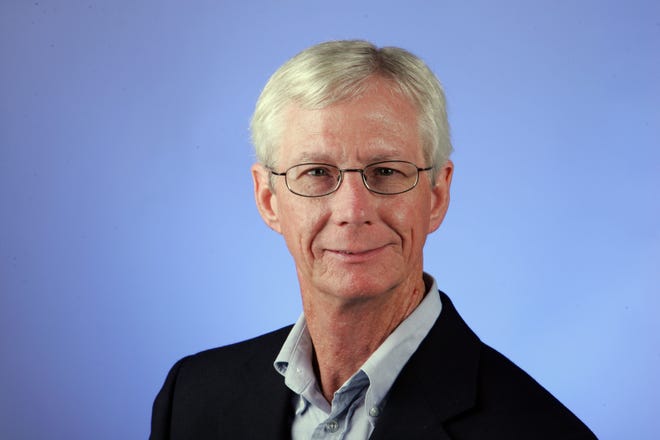
June is designated as Pride Month, in which gay, lesbian, bisexual and transgender people celebrate their identities and remind society they should be entitled to respect, equality and freedom from discrimination. These forms of sexual identity historically have been rejected by traditionalists, whose views are often undergirded by religious doctrine.
The Catholic Church, conservative Protestants, the Latter-day Saints (Mormons), Orthodox Jews and conservative Muslims all have varying degrees of strictures against non-heterosexual partnerships. There are reasons based in scriptures and past tradition for those taboos, but the unfortunate result is an antagonism between LGBTQ people and religious traditionalists that frequently devolves into little more than name-calling.
To be sure, traditionalists often have exercised more judgment than charity in their dealings with LGBTQ persons and caused a lot of harm. And yet, perhaps understandably, the LGBTQ community has resorted to labeling as hate speech any traditional view without trying to understand important religious principles at stake.
So it is refreshing to learn of one courageous young gay woman who has held to her faith while occupying a position of leadership at a conservative Christian college, which responded with a measure of good will. According to an article by Religion News Service, Claire Murashima was the first openly gay student body president at Calvin University in Grand Rapids, Michigan, and graduated in May. Calvin is affiliated with the Christian Reformed Church, a small denomination that traces its heritage to the Dutch Reformed tradition and officially teaches that “homosexual practice” is “incompatible” with the will of God. LGBTQ persons are not allowed to hold faculty positions.
This would seem to be a formula for controversy, but Calvin, although conservative, has a reputation for being thoughtful and open to discussion. For her part, Murashima took a strategic approach. According to RNS, she did not come out publicly until after she was elected student body president and made the decision not to be in a relationship during her tenure.
More:McMullen: Opposing Trump means the end for a Southern Baptist leader
More:McMullen: ‘Minari’ is uplifting story of salvation and humanity
More:The ‘God beat’ loses two of its best religion journalists
“I wasn’t trying to do anything revolutionary or harmful to Calvin,” Murashima told the news service. “I mainly came out so people could look to me and know they didn’t have to give up their faith if they’re in the LGBTQ community.”
Murashima came out in an editorial published in the student newspaper in October, which she shared in advance with the university president, a chaplain, and several deans and professors.
“I didn’t want to catch anyone off guard,” she said. “I wanted to share my story and not undermine them. My question was not, ‘Should I do this?’ but ‘How should I do this?’”
The response was mostly support, mixed with polite disagreement and conversation. There was one small unauthorized protest, which was met with a silent counter-protest. According to RNS, a professor with traditional views invited her to his home for dinner.
No doubt there are some LGBTQ activists who would denounce Murashima for denying her full identity by abstaining from a same-sex relationship and would have wanted her to take more provocative action. And there are likely some within the Christian Reformed Church who are indignant that Calvin allowed her to hold the office.
But the actions taken by both Murashima and Calvin strike me as remarkably mature. Murashima could have stayed in the closet, but she chose to embrace her identity without denying her faith or embarrassing the school. Calvin could have reacted dogmatically, demanding that she renounce her identity or resign, but it chose instead to recognize Murashima’s sincerity and responded with tolerance.
LGBTQ people of faith are finding more welcome these days. Reform Judaism, as well as the so-called mainline Protestant churches such as the United Church of Christ, the Presbyterian Church (USA) and the United Methodist Church, currently or in the near future will allow same-sex relationships. In the Catholic Church, Pope Francis has signaled a more welcoming posture, and even among conservative Protestants, same-sex relationships are not the flashpoint for a younger generation that they were 20 or 30 years ago.
Claire Murashima’s experience at Calvin indicates that even in a traditionalist bastion, it is possible for both sides to treat each other with charity and respect. That is a sign of hope that the fires of antagonism can be cooled and a little more understanding can prevail.
Cary McMullen is a retired journalist and former religion editor at The Ledger.